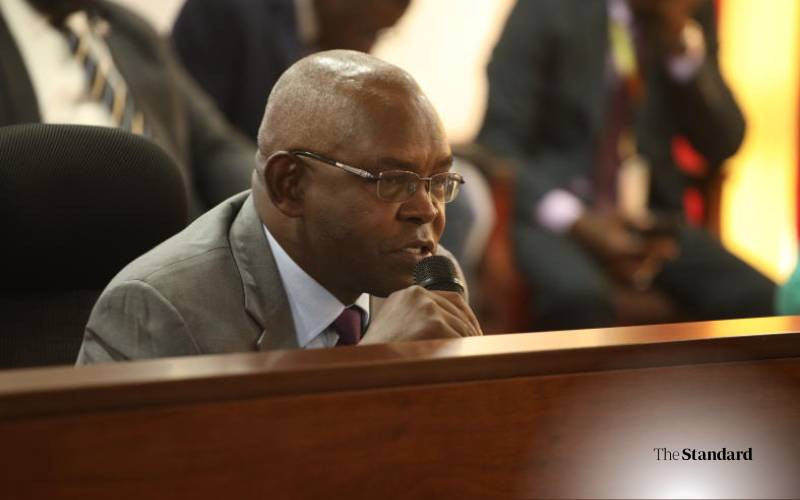Central Bank Accused of Favoring Kikuyu and Kalenjin in Staffing
 The Central Bank of Kenya (CBK) has come under fire from the Senate after fresh figures showed that nearly half of its workforce comes from just two ethnic communities—a move lawmakers say undermines Kenya’s diversity and fairness in public service.
The Central Bank of Kenya (CBK) has come under fire from the Senate after fresh figures showed that nearly half of its workforce comes from just two ethnic communities—a move lawmakers say undermines Kenya’s diversity and fairness in public service.
Appearing before the Senate’s National Cohesion, Equal Opportunity, and Regional Integration Committee, CBK Governor Kamau Thugge admitted that the Kikuyu and Kalenjin communities dominate staffing at the institution. Of the 1,311 employees currently on the bank’s payroll, 325 are Kikuyu and 258 are Kalenjin.
These figures triggered a strong reaction from lawmakers, who accused the CBK of perpetuating systemic bias in hiring practices. Committee chair Senator Mohammed Chute didn’t mince words.
“From your own presentation, the Kikuyu and Kalenjin communities account for nearly 50% of CBK jobs. Even internship opportunities are being disproportionately given to the Kalenjin community. This is unacceptable,” said Chute.
The data revealed that other communities are underrepresented, with 139 Luo employees, 123 Kamba, 113 Luhya, 90 Kisii, and 66 Meru. Alarmingly, only a handful of staff hail from smaller communities—Maasai (31), Taita (30), Mijikenda (25), Embu (17), Somali (13), and Borana (7). The Kuria, Mbeere, and Turkana communities each have just five staff members.
Lawmakers are now calling on the CBK to align its hiring with Article 232 of the Constitution, which mandates fair representation of Kenya’s diverse communities in public institutions.
In response, Governor Thugge acknowledged the imbalance and assured senators that corrective measures are underway. He revealed that about 35% of CBK’s staff—roughly 455 employees—are aged between 51 and 60 and are nearing retirement. He said this provides a timely opportunity to rebalance the institution’s workforce through inclusive recruitment.
“We admit that staffing has been skewed toward two communities. We’re committed to fixing this going forward,” Thugge said.
He added that CBK currently employs staff from 31 ethnic groups, representing about 67% of Kenya’s 46 recognized communities, and emphasized the bank’s commitment to internal diversity policies.
Still, senators demanded greater accountability. Busia Senator Okiya Omtatah and Makueni Senator Dan Maanzo requested a detailed breakdown of the ethnic makeup of leadership, especially the heads of CBK’s regional branches in Kisumu, Kisii, Mombasa, Nyeri, Eldoret, and Nakuru.
“We need to understand how regional branch leadership is distributed across communities and how promotions are handled. Transparency is essential,” said Omtatah.
Thugge pledged to submit a full report listing all branch heads and every promotion made over the past 16 months. He also said CBK’s recruitment process includes six panelists—among them external HR experts—to ensure fairness and objectivity.
Additionally, Thugge promised closer collaboration with county governments and the National Council for Persons with Disabilities to make CBK’s hiring practices more inclusive and reflective of Kenya’s national fabric.









